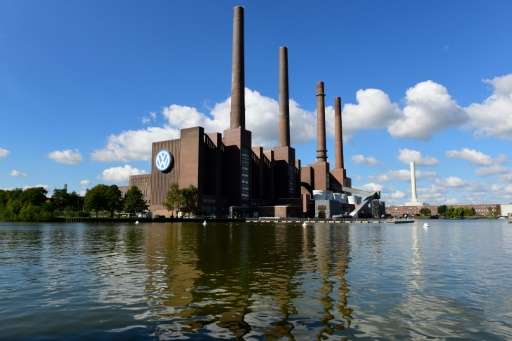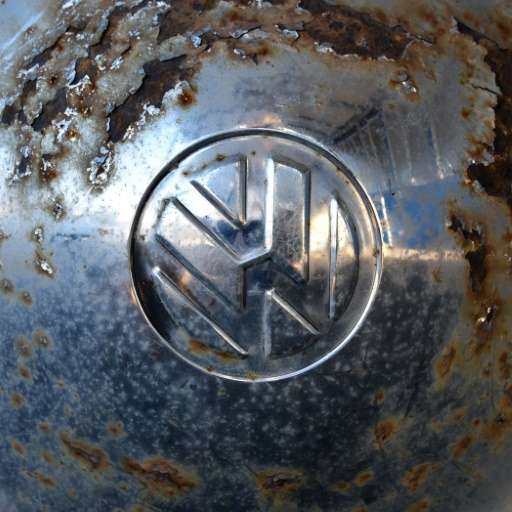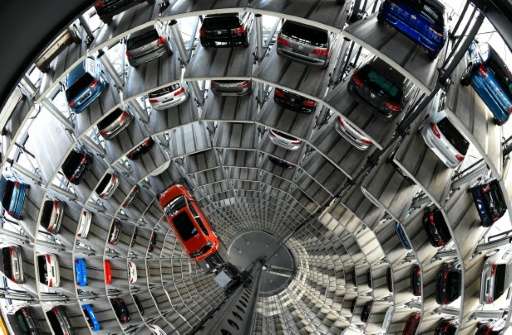One year on, can Volkswagen leave 'dieselgate' behind?

One year ago, Volkswagen's cheating on emissions tests for millions of its diesel cars erupted into public view, leaving the mammoth carmaker battling an unprecedented crisis.
Barely a week has passed since that has not seen a fresh twist in the saga, which has tarnished Germany's proud auto industry and called the future of diesel as a whole into question.
Volkswagen has sought to make amends with mass recalls and a fresh focus on building cleaner cars, but a mountain of legal complaints and ever-louder demands for compensation have made it difficult for the auto giant to turn the corner.
The scandal "has had huge effects on Volkswagen and the whole sector," said industry expert Stefan Bratzel of Germany's Center for Automotive Management.
VW built itself over decades into Europe's car champion and now sells vehicles under 12 separate brands—from Seat, Skoda and Volkswagen to luxury brands Audi and Porsche.
The firm rakes in 200 billion euros ($225 billion) in sales each year and employs 600,000 people globally.
But the Wolfsburg-based group was rocked to its core when US regulators on September 18, 2015 accused it of deliberately skewing emissions data.
VW then publicly admitted it had installed so-called "defeat devices" in 11 million diesel-powered vehicles around the world.
The software is able to detect when cars are undergoing regulatory tests and lowers their emissions accordingly, giving them the appearance of being less polluting than really are.
In response to the revelations, former chief executive Martin Winterkorn fell on his sword while insisting he had known nothing of the scheme, leaving then-Porsche boss Matthias Mueller to take over the whole group.

But no change of the guard could protect VW from a barrage of lawsuits and compensation claims from the authorities, customers and investors.
So far VW has put aside 18 billion euros in legal provisions, which helped push the company to its first annual loss in more than 20 years last year.
When the crisis broke, investors watched in horror as VW stock lost 40 percent of its value in just two days—burning up 30 billion euros of market capitalisation.
One year on, VW remains valued around 20 percent lower than it was before last September.
The scandal didn't trigger a collapse in sales for the group, but vehicles sold as Volkswagens have suffered a knock—especially in the United States, where the brand was already limping.
Miles to go
"One year after 'dieselgate', Volkswagen has maybe gone 50-60 percent of the way, but there's still a lot to do," Ferdinand Dudenhoeffer, director of the Center for Automotive Research at the University of Duisburg-Essen told AFP.
In the US, the firm was able to reach a deal settling some of the claims, agreeing to pay almost $15 billion in fines and in compensation to some 480,000 car owners.
But VW still faces other legal claims in the US as well as lawsuits and probes around the world, including in Australia, South Korea, Germany, France and Italy.
And European authorities are stirring in Brussels, animated by the charge that American VW customers are being treated better than EU citizens affected by the scandal.

So far, VW has refused to compensate Europeans or buy back their vehicles. Instead, it plans to retrofit the 8.5 million vehicles affected to meet emissions standards.
Experts predict the total bill for Volkswagen could reach between 25 and 35 billion euros, leaving the firm once again raiding its piggy bank but not threatening its survival.
'Turning point'
Dudenhoeffer suggests that 'dieselgate' could in the end be a "boon for Volkswagen".
New CEO Mueller has adopted a bold strategy, promising dozens of new electric vehicles in coming years as well as pushing into fields like car-sharing services and self-driving cars.
VW's cheating also seen the whole industry come under regulators' microscopes, shining a spotlight on the harmful effects of polluting engines.
The scandal has been a "turning point for diesel," Bratzel said.
From September 2017, carmakers will submit vehicles for on-road testing as well as laboratory probes, forcing them to invest in more effective anti-pollution systems.
With time, European roads—where diesels have long held a larger market share than elsewhere—will see fewer such vehicles as the technology becomes more expensive, leaving an opening likely to be filled by electric cars.
© 2016 AFP





















